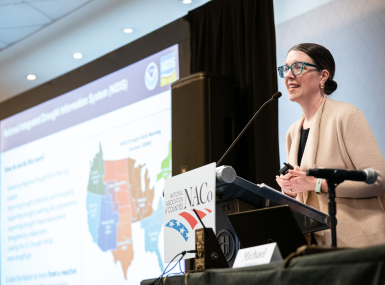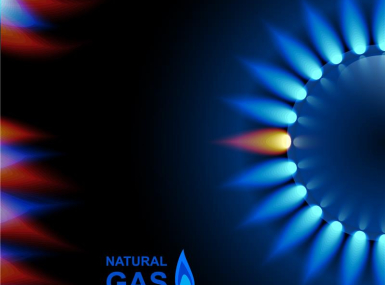EPA opens $3 billion Clean Ports Program
Author

Charlotte Mitchell Duyshart
Upcoming Events
Related News

Key Takeaways
On February 28, the U.S. Environmental Protection Agency (EPA) announced the availability of $3 billion in grant funding through the Clean Ports Program. Established under the Inflation Reduction Act (IRA), the competitive Clean Ports Program aims to help ports transition to zero-emissions operations, reduce diesel pollution and engage with the local community.
Are counties eligible?
Yes. Counties that have jurisdiction over a port or port authority are eligible to apply for both competitions under the Clean Ports Program. Ports are defined as marine and inland water ports, as well as dry ports.
How much funding is available?
$3 billion is available for the Clean Ports Program. $750 million is reserved for communities in non-attainment areas.
Funds will be awarded through two separate competitions:
- $2.79 billion will be awarded through the Zero-Emission Technology Deployment Competition (access the Notice of Funding Opportunity here)
- $150 million will be awarded through the Climate and Air Quality Planning Competition (access the Notice of Funding Opportunity here)
What can the funding be used for?
Eligible expenses under the Zero-Emission Technology Deployment Competition include:
- Zero-emission mobile equipment, including the purchase and deployment of new eligible battery-electric or hydrogen fuel cell vehicles, vessels, powertrains or other mobile equipment
- Zero-emission infrastructure fueling infrastructure that serves equipment purchased with grant funding
Eligible activities under the Climate and Air Quality Planning Competition include:
- Emissions inventorying and accounting practices (this activity is required)
- Stakeholder collaboration and communication, with an emphasis on communities located near the port
- Resiliency measure identification
- Strategy analysis and goal-setting
What is the award ceiling?
Awards for the Zero-Emission Technology Deployment Competition will be awarded within three tier bands:
- Tier A: Projects between $150 million and $500 million
- 5 to 10 awards anticipated
- 20 percent local match required
- Only available to water ports
- Tier B: Projects less than $150 million
- 25 to 70 awards anticipated
- 10 percent local match required
- Available to both water and dry ports
- Tier C: Tribal projects between $2 million and $50 million
- 2 to 10 awards anticipated
- 0 percent local match
- Available to both water and dry ports
Awards for the Climate and Air Quality Competition will range from $200,000 to $3 million. EPA anticipates awarding 50 to 70 grants under this competition and no cost share is required.
When is the application due?
Applications for both competitions are due May 28, 2024. Access the Zero-Emission Deployment Competition NOFO here, and the Climate and Air Quality Competition NOFO here.
Additional resources
EPA will host a webinar to provide an overview of the Clean Ports Program on Wednesday, March 13 from 2:00 p.m. to 4:00 p.m. EDT. Registration for the webinar is open here.
Resource
Legislative Analysis for Counties: The Inflation Reduction Act

Related News

NOAA outlines help for counties navigating drought’s growing risks
In April, the National Integrated Drought Information System will launch the Mid-Atlantic Drought Early Warning System, which will help county officials allocate resources and attention to mitigate drought-related disasters.

House Agriculture Committee introduces 2026 Farm Bill
On February 13, House Agriculture Committee Chairman G.T. Thompson (R-Pa.-15) introduced the House version of the 2026 Farm Bill, the Farm, Food, and National Security Act of 2026.

